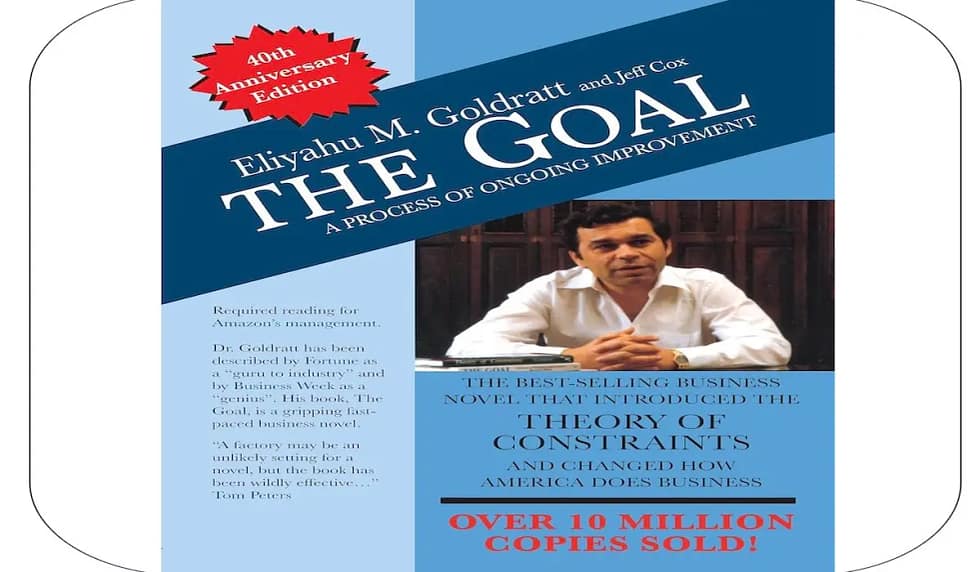The Goal by Eliyahu M Goldratt is among the most important management books of the 20th century. It has significantly influenced my journey as a professional engineer, employee and entrepreneur.
My first manager gave me the book when I started my career twenty-odd years ago. I am grateful for many gifts of learning from him, not least of which is that he placed this book in my hand. It made a huge impression on me, as did his act of trusting a green 24-year-old with so much responsibility and giving me a great tool to learn how to deliver.
The book is written as a novel, quite different from the majority of management books. Most of the action takes place in a manufacturing plant. The protagonist, plant manager Alex Rogo, is facing two crises: his supervisor has given him a 3-month ultimatum to turn around the plant’s fortunes, and his wife has left him. One day, Alex meets his old professor at an airport and begins a series of conversations that help him identify his true goals and navigate towards them. By using this novel-like structure, Goldratt is able to lay out several valuable ideas without preaching.
As an engineer on the factory floor, I could easily relate to the lessons of The Goal. The concept that stayed with me the most was what Goldratt calls bottlenecks. The common-sense principle is that the weakest part of the system constrains the efficiency of the whole system. But there are lessons everywhere in The Goal, and as I gained more work experience, I began to appreciate them even more. When the entrepreneurial bug bit in 2014, seeing the principles of The Goal in action influenced how I approached the setup and operation of the business.
Here are a few things I learnt from The Goal:
Know the ‘true’ goal
If we don’t have clarity on what we are trying to achieve, we may waste a lot of effort without making progress.
Identify the bottlenecks
Everything is interconnected, and the weakest part holds the stronger parts back. So, understanding how things are connected, finding and focusing on the constraints is vital to getting better results.
System is more important than its parts
Designing a system or process that is more efficient is key – even if it means that a few individual steps or parts are less efficient. In other words, when we think of optimization, we should think big, because local optimizations may interfere with each other.
Knowledge and help are everywhere if we just look
A fresh environment can give birth to new ideas
The problems at the factory are overwhelming, and the questions posed by Alex’s professor seem unanswerable until Alex takes his son’s hiking club on an outing. He is then able to relate the problem of how to keep the kids together and reach their campsite on time to the issues he is facing at the plant.
Asking people can be better than telling people
Alex’s professor never tells or advises. Instead, he asks Alex and his team questions that force them to think and work things out for themselves. Because of this, they develop the habit of considering things carefully, collaborating, finding their own solutions, and figuring out the right questions to ask.
The Goal was first published in 1984. Many great, transformational ideas about management, operations, systems and other concepts have come about in the four decades since then, but the fundamental lessons of the book remain relevant even now. They apply to any industry, even those that did not really exist in their current form in 1984, such as software and services. As the book demonstrates, the ‘bottleneck’ framework can even be used to deal with the challenges in our daily lives.
Over two decades after I first read it, The Goal is still very meaningful to me and I often gift it to others (most recently, our Head of Operations). I highly recommend The Goal to entrepreneurs, employees and anyone who is looking for a rational approach.


